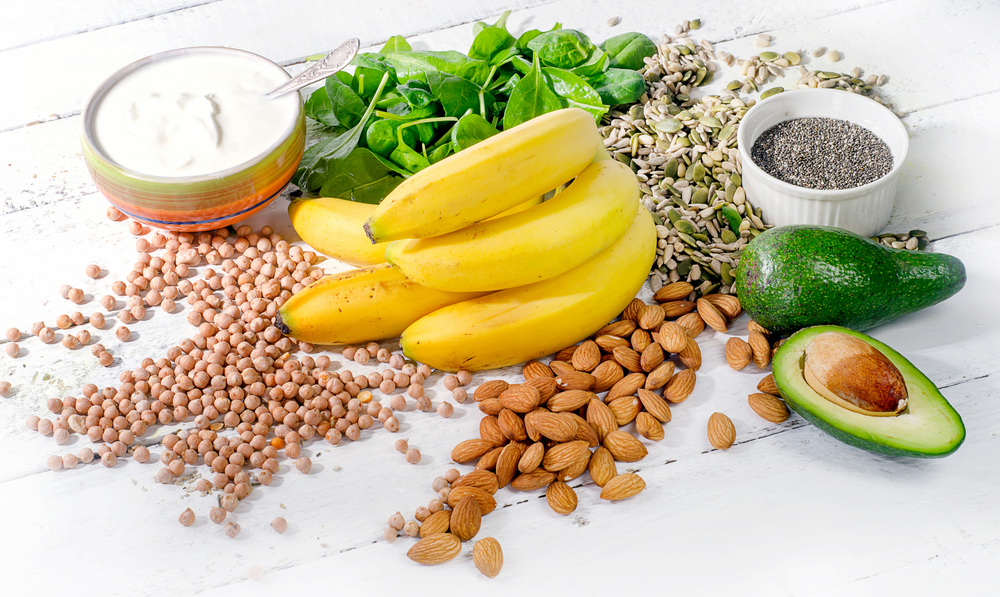
Your body needs energy to be able to do any sport. It’s particularly important for endurance athletes like long-distance runners. If you don’t have the right nutrients, you can kiss those marathons, half marathons, and other competitive events goodbye. That’s why pjuractive has decided to take a closer look at which nutrients are essential for you as a runner and at what you should be aware of.
The most important elements in your diet
As a general rule, your diet should include the following elements: Carbohydrates, protein, fats, vitamins, and water.
Carbohydrates should be the main element in your diet. To be more precise, they should make up between 60 and 70 percent of the total calories you consume in a day. For athletes, the rule of thumb is 6 grams of carbohydrates for every kilogram of body weight. Depending on how much you train it can even be more than that. Carbohydrates provide energy and are therefore particularly important when it comes to running long distances.
Protein is also necessary. It is recommended that you have 1 gram of protein for every kilogram. A person weighing 65 kilograms would therefore need roughly 65 grams of protein, which must be spread out through the day in the form of food. If you do a lot of sport, you may need to have even more protein. To be precise, roughly 1.2 to 1.7 grams of protein for every kilogram of body weight. For a person weighing 65 kilograms, that would therefore be 78 to 110 grams of protein every day. Foods such as fish, lean meat, dairy products, and soy products all contain high levels of protein. Protein makes up about 10 to 15 percent of the energy we get from food.
Fats and oils are also essential for nutrition and for providing your body with the nutrients it needs for maximum performance. Some fats are even vital for life. For example, it is absolutely essential that we have unsaturated fatty acids, which can be found in a number of foods including olive oil and rapeseed oil, and omega-3 fatty acids, found especially in fish and flaxseed oil. Every gram of fat you consume provides more than twice as much energy as you get from a gram of carbohydrates. So far from being bad, fats are in fact nutrients that are absolutely necessary for a balanced diet that will enhance your performance.
Ideally, you should also incorporate five portions of fruit and vegetables into your diet every day. This will give you the vitamins you need.
And it’s not just about eating—drinking is essential, too. You should aim to drink at least 1.5 to 2 liters of water a day. If you do lots of sport, you’ll need even more.

Nutrients that can enhance your performance
- Iron: A good supply of oxygen can make you faster, and iron gives you precisely that. That’s why it’s important for runners to make sure they have enough iron in their diet. To do this, athletes can eat red meat, which is particularly high in iron, as well as spinach, pulses, nuts, soy products, and even sorghum. And here another little tip: Your body absorbs iron much more effectively when you have it with vitamin C. So when you eat iron-rich food, simply have it with a glass of orange juice. On the other hand, you should avoid drinking tea or coffee at the same time as they can inhibit iron intake.
- Calcium: Not only is calcium the main component in our teeth and bones, but it also helps our muscles and nerves work together well. What’s more, it promotes blood clotting and ensures that we don’t suffer from muscle cramps constantly. We need 1000 milligrams of calcium a day. Yoghurt, quark, and milk are particularly good sources of calcium. And just as vitamin C encourages iron absorption, it also helps the body absorb calcium. Vitamin D improves calcium absorption as well.
- Vitamin E: Eating a lot of vitamin E strengthens and protects your cells. This is because vitamin E is an antioxidant and can protect us from free radicals. This means less muscle damage after training and can also lead to an improvement in our running performance. Vitamin E is also rumored to promote blood flow and elasticity, to have an anti-inflammatory effect and to improve the body’s defenses. High levels of vitamin E are found in the following foods:
- Almonds
- Sunflower seeds
- Hazelnuts
- Sunflower oil
- Thistle oil
Fat is necessary to be able to absorb vitamin E effectively. Oils and nuts contain fats anyway. With the other foods, it is therefore necessary to include a fat source in your nutrition plan too.
Eating right for competitive events
It is especially important to eat the right nutrients on the day of a competition to allow you to put in your best performance. You must eat enough to see you through your run, but obviously you mustn’t eat so much that you can’t get off the starting line, so to speak. In the morning, before your race, you should therefore have a breakfast that is easy to digest and rich in carbohydrates. You should avoid fat and fiber as much as possible here, as they are very hard to digest. Your best bet is therefore some bread with a little butter and honey or jam. You should eat it two or three hours before the competition. You should definitely avoid wholewheat products and you should be careful with dairy products—test them out beforehand to see how well you deal with them. A lot of athletes have problems if they eat dairy products before running a marathon, half marathon, or similar event. About an hour to 45 minutes before your race, you should then have a snack bar or a ripe banana to give you the last bit of energy and nutrients you need.
There are a few points to bear in mind when it comes to drinking, too. It’s best to stick to water or herbal teas for a few hours beforehand. You should avoid coffee completely. About 30 minutes before the race, you should then drink another 100 to 150 ml of sodium-rich water. The water should contain at least 400 mg of sodium to make sure you have enough sodium. It’s best to go for still water but lightly carbonated water is okay too.
If you are going to be running for more than 90 minutes, you should definitely think about having some liquid carbohydrates during the race. There are lots of different energy gels available, produced by various brands.
So now you’re ready to get going with your endurance sport. And with the right nutrients, you’ll reach the finish line faster. That’s a promise 🙂